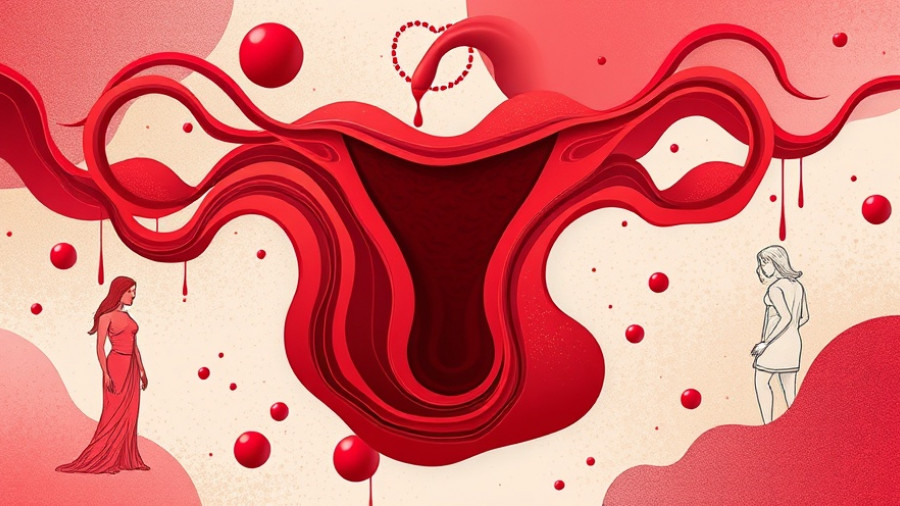
Understanding Menorrhagia: A Common Challenge for Women
Menorrhagia, or heavy menstrual bleeding, is more than just an inconvenience for many women. It can significantly impact their quality of life, academic performance, and overall well-being. Recent studies have indicated that heavy menstrual bleeding isn't just a minor issue; it often leads to serious health conditions and emotional distress, making early detection and management crucial.
The Health Implications of Heavy Menstrual Bleeding
A recent study conducted at Assiut University in Egypt highlights the prevalence of heavy menstrual bleeding among female students. The study found that many young women do not seek help for their menstrual issues, often due to embarrassment or misinformation about what constitutes a “normal” cycle. This lack of understanding can lead to conditions that go untreated, impacting both health and academic performance.
According to the study, heavy menstrual bleeding is a primary cause of iron deficiency anemia in adolescent females. This condition can lead to chronic fatigue, further hindering academic success and personal development. It is vital for women experiencing these symptoms to seek medical advice, as heavy menstrual bleeding can indicate underlying health problems such as polycystic ovary syndrome or endometriosis.
Evidence from Clinical Trials
The findings are supported by other research, such as studies conducted by Mayo Clinic, which analyze the effects of heavy menstrual bleeding on women’s health. They emphasize the importance of clinical trials in understanding the complexities of menorrhagia. These trials aim to explore various interventions that can alleviate symptoms, improve quality of life, and enhance learning outcomes in affected young women.
ClinicalTrials.gov provides a wealth of information on ongoing studies targeting menorrhagia, showcasing the commitment of researchers worldwide to tackle this prevalent issue. It is essential for women to stay informed about such trials, as participation could offer them access to new treatments and therapies.
Responding to the Challenge
For women facing menorrhagia, understanding the condition is the first step toward managing it. Women should feel empowered to discuss their symptoms with healthcare providers and advocate for themselves. By participating in clinical research, they are contributing to a growing body of knowledge that could lead to better care for future generations.
Families, universities, and communities must foster an environment where discussions about menstrual health feel safe and supportive. Education about what constitutes heavy menstrual bleeding can reduce stigma and encourage women to seek the necessary help.
Wrap-Up: Take Charge of Your Health
Heavy menstrual bleeding is not just a personal battle; it is a community health issue that calls for a collective response. Research initiatives and clinical trials offer hope, but awareness and proactive health management are essential. As more women advocate for their health, we can push for improved understanding and treatment of menorrhagia at all levels.
 Add Row
Add Row  Add
Add 




Write A Comment